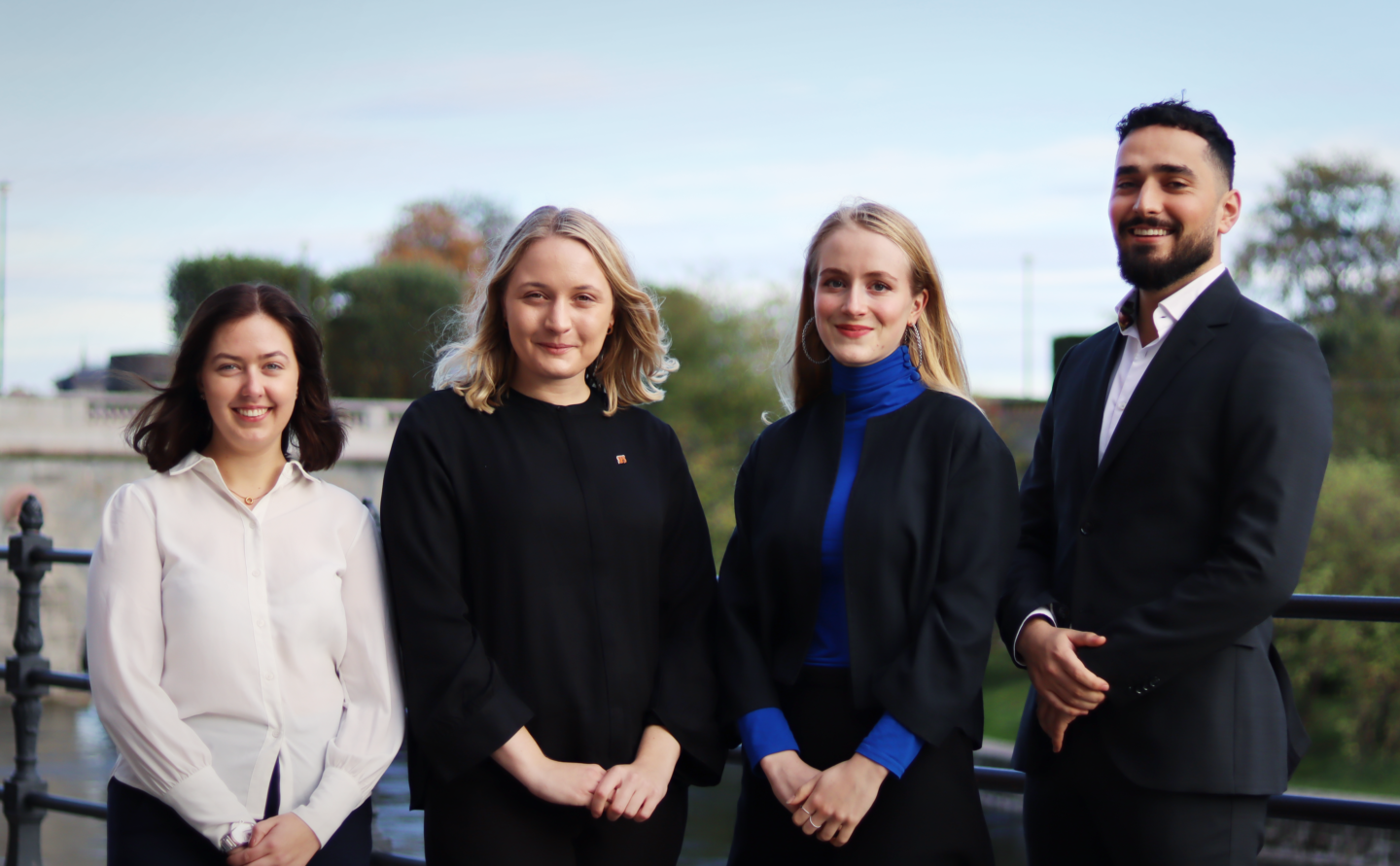This blog post is written by SFS International Committee, Committee: Moa Johansson, Linn Svärd, Henrietta Berner and Ismail Bazine.
During this week, SFS's international committee, Komit, has participated in European Students' Union (ESU) Board Meeting 81, BM81. ESU brings together the European student unions and at the meeting we were welcomed Meginfelag Føroyskra Student (MFS), which is SFS's equivalent for the Faroese students. A day of happiness and a warm welcome to MFS after several years of work.
Main group Føroyskra Students
MFS was founded in 1962 with the primary purpose of gathering students' voice within an organization. The goals since 1964 indicate a strong will to combat all types of inequality. In addition, MFS aimed to work for a Faroese university and that access to education should be equal for all. Also to establish strong international relations, of which joining the ESU is a part. Some of these goals have been met, such as the establishment of the University of the Faroe Islands, which was founded in 1965, but work on a university for all is ongoing.
Quality of Higher Education
The work of the ESU is based on opinion documents adopted by the members. At this meeting, the opinion document dealing with Quality in higher education was revised. Quality assurance and quality work can take place at several levels, but common to the European, national and local levels is that the structure and the systematic aspect characterize the quality work.
ESU believes that the quality of higher education should be one of the highest priorities in the debates within the European higher education society, as well as it should be accessible and enhanced at the institutional and program level to ensure the best possible conditions for the entrance and completion of higher education.
For SFS, quality in higher expansion is a priority issue and has been so since the organization's founding. The same applies to the ESU. At this meeting, the role and opinions of the students were strengthened. In addition, opinion documents were supplemented with additional aspects, this due to the fact that quality in higher education is affected by, or may affect other aspects of studies.
Discrimination against Neurodivergent Students
New for this BM was an opinion program for the ESU's approach to discrimination against functionally diverse students. The program aims to increase awareness of the difficulties students with disabilities face in higher education and to create a starting point to counteract these difficulties. The development of the program is in line with the UN Convention on the Rights of Persons with Disabilities, which has been ratified by most member states of the EHEA, including Sweden in 2009.
SFS is in favor of the adoption of a position against discrimination of functionally diverse students and participated in the revision of a fruitful and precise program of opinions. In accordance with the current business plan (2021/22), it can be mentioned that SFS at national level works for further development of pedagogical support measures with the aim of increasing the real access to higher education in Sweden.
Strategic Priorities 2022 - 2024
SFS and 44 other equivalents in 40 European countries gather within SFS. The assignment is to represent and convey the students' opinions on issues that affect the students. These can affect the conditions for conducting studies for the students, so-called social, economic and cultural, but also the conditions for conducting higher education in terms of how the university is financed and made available to more people. Through the ESU, SFS presents its views at the European level and the ESU works with the European Union, the Council of Europe, the Bologna Follow Up Group and UNESCO, among others.
For a powerful advocacy work with the possibility of change, the ESU members state priority issues to drive externally as well as to develop the organization. Priority issues for SFS nationally and internationally include high-quality education, prioritization of students' mental health and work environment, and academic freedom, which is also found in ESU's priorities. Agreeing on this document was difficult and the differences in national affairs can be seen in the discussions. For SFS, it is important to also act as a resource and role model for other countries in higher education policy issues.
The meeting decided, among other things, that the ESU should
- Focus its work on the continued implementation of the Bologna Process, European Higher Education Area, European Education Area and European Universities, the Erasmus +, European Research Area, Next Generation EU and the green and digital transition.
- Support the member organizations in the work with broadened participation and broadened recruitment, part of which is about technical and administrative staff having the right skills and tools to meet students for better inclusion.
- Contribute to the development of quality-assured alternative educational paths for students from different backgrounds, such as marginalized groups and minorities. These must have the same access to, the opportunity to participate in and succeed in their education.
- Map the main causes of the phenomenon brain drain (so-called skills flight) and increase awareness of the conditions for dealing with this.
- Advocate for the diversity and equal status of higher education institutions within the Alliance for European Universities.
Committee,
Henrietta, Moa, Ismail and Linn
